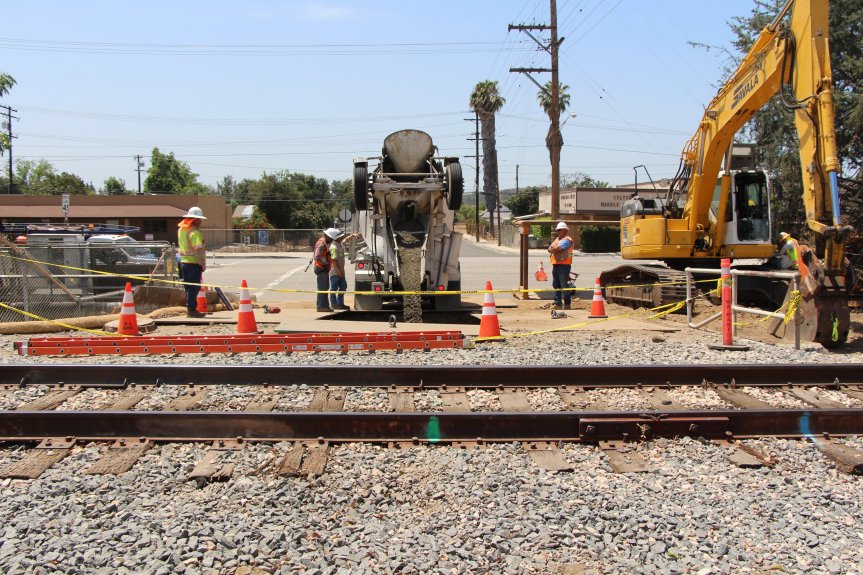The following excerpt appeared in the San Gabriel Valley Tribune and Inland Valley Daily Bulletin on November 13, 2018. To read the full article, click here.
Gold Line extension delayed because of steel tariffs, runaway construction costs, authority says – San Gabriel Valley Tribune

Construction crews from the utility-relocation work for the Gold Line Glendora-to-Montclair extension, backfilling newly-protected sewer line at B Street in La Verne. July 12, 2018. (photo courtesy of the Metro Gold Line Foothill Extension Construction Authority).
By Steve Scauzillo
November 13, 2018
[Excerpt]:
The Authority, known for building projects “on time and on budget” was blindsided by the sky-high bids, saying the project is being proposed in a perfect storm of tariffs imposed on imported steel by the Trump Administration, a hot economy driving up wages, and a market flooded with proposed rail and transit projects in which bidders can set their own price.
Prices for steel and cement have been rising since the initial estimates and requests for proposals in 2016. A report from Kenneth Simonson, chief economist with the Associated General Contractors of America, points to rising material and labor costs as the main culprits.
Specifically, Simonson cited:
- Tariffs raising the price of imported steel, while domestic steel producers also raise prices to keep up.
- Tariffs imposed by the Trump administration on 10 percent of $200 billion of Chinese imports “many of which are used in construction.”
- Future tariffs scheduled to increase to 25 percent on Jan. 1, 2019, leading to escalating bids from transit-oriented construction firms.
He also pointed to tighter immigration policies that have kept down the number of foreign-born hourly workers, forcing construction companies to pay more for workers.
To read the full article, click here.
